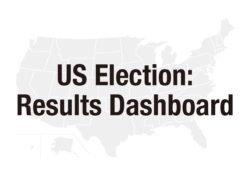- Yomiuri Editorial
- U.S. rate hike
Even with dramatic tightening policy, can Federal Reserve avoid recession?
12:11 JST, August 2, 2022
The U.S. Federal Reserve Board must walk a difficult tightrope to avoid recession while containing historic inflation. The Fed needs to manage its policies with prudence.
The Fed has decided to raise its key policy rate by 0.75 percentage point to guide it between 2.25% and 2.50%. As it did in June, the Fed raised its policy rate by three times the normal increment.
The U.S. consumer price index (CPI) rose 9.1% in June from the same month a year ago, the highest rate in about 40½ years. The Ukraine crisis has caused prices of food, fuel and other items to soar.
Fed Chairman Jerome Powell said at a press conference that he is “acutely aware that high inflation imposes significant hardship.”
Rising prices of daily necessities mainly hit lower income groups. The first priority is to keep inflation under control, and Powell likely aims at emphasizing that this is why the Fed is raising the interest rate so sharply.
Powell indicated that he intends to raise interest rates again as early as September. But as in the past, the chairman did not give prior notice of the range of rate hikes. This is due to growing concerns about the economic outlook.
The Fed has been tightening monetary policy since it ended its zero-interest-rate policy in March. The effects of this policy are gradually intensifying. Home sales are declining due to higher interest rates on loans, and consumer spending growth is also said to be sluggish.
The preliminary U.S. real gross domestic product for the April-June period declined 0.9% on a quarter-on-quarter annualized basis, the second consecutive quarter of negative growth. It was due to declines in housing investment and corporate capital investment.
In its latest economic outlook, the International Monetary Fund has significantly revised down its forecast for U.S. growth this year. It can be said a U.S. recession has become a reality, and it is hoped that the Fed will carefully assess the state of the economy and prices, and adjust the pace of interest rate hikes.
Meanwhile, U.S. rate hikes have widened the interest rate gap with Japan, which continues to pursue monetary easing, causing the yen’s depreciation. This is because moves to buy the U.S. dollar have intensified because it is seen as more advantageous to invest funds in the United States. A weaker yen pushes up the price of imports to Japan, leading to higher prices.
In July, the yen had weakened against the dollar to the ¥139 range. After the latest Fed interest rate hike, however, the yen grew sharply stronger. One of the reasons for this is reportedly a fall in U.S. long-term interest rates caused by the purchase of U.S. Treasuries, which are considered safe assets, on the prospect of a recession in the U.S. economy.
However, even if the yen’s depreciation is temporarily corrected, if the U.S. economy worsens, the Japanese economy will be hit by a decline in exports to the United States and other factors. The government and the Bank of Japan should closely monitor developments in the U.S. economy.
(From The Yomiuri Shimbun, Aug. 2, 2022)
"Editorial & Columns" POPULAR ARTICLE
JN ACCESS RANKING





